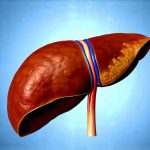Our bodies are incredible self-regulating systems constantly striving for balance – homeostasis. This equilibrium is profoundly influenced by hormones, chemical messengers critical for everything from mood and metabolism to reproductive function and stress response. However, hormonal imbalances are increasingly common in modern life, driven by factors like chronic stress, poor diet, environmental toxins, and a disrupted microbiome. While many focus on the hormones themselves, often overlooking is the crucial role of the gut – our internal ecosystem – in effectively processing and eliminating these vital compounds. A healthy gut isn’t merely about digestion; it’s integral to hormonal detoxification, influencing how efficiently we clear both beneficial and excess hormones from the body.
The process of hormone ‘detoxification’ isn’t about harsh cleanses or restrictive diets, but rather supporting the natural pathways our bodies use to metabolize and eliminate hormones. These pathways rely heavily on enzymatic processes, many of which are significantly impacted by gut health. A compromised gut can lead to hormonal recirculation, where metabolized hormones are reabsorbed instead of being excreted, contributing to imbalances. Understanding this interconnectedness is key to fostering hormonal wellbeing and overall health. We’ll explore how the gut influences estrogen and cortisol detoxification specifically, and what steps we can take to support a thriving gut microbiome for optimal hormonal balance. Considering digestive balance is also critical in this process.
The Gut-Estrogen Connection: Estrobolome & Detoxification Pathways
Estrogen isn’t just a female hormone; it’s present in both men and women, playing vital roles in various bodily functions. However, excess estrogen or imbalances can contribute to conditions like PMS, fibroids, endometriosis, PCOS in women, and prostate issues in men. The body metabolizes estrogen through several phases, primarily in the liver, but a significant portion of this process happens within the gut itself – thanks to the estrobolome. This isn’t an actual part of the microbiome, but rather the collection of bacterial enzymes capable of metabolizing estrogens. A diverse and robust estrobolome is essential for breaking down estrogen into forms that can be easily excreted by the body.
A dysbiotic gut—one with an imbalance of bacteria—can impair the estrobolome’s function leading to several consequences. For example, certain bacterial overgrowths may produce beta-glucuronidase, an enzyme which deactivates conjugated estrogens (the form that’s easier for the body to eliminate). This causes reabsorption of estrogen back into circulation, increasing overall estrogen levels and potentially contributing to hormonal imbalances. Furthermore, gut inflammation can compromise liver function, reducing its capacity to effectively process estrogen as well. Therefore, a healthy gut microbiome isn’t just about digestive health; it’s directly tied to optimal estrogen metabolism and excretion. Understanding gut inflammation is essential for understanding this process.
Supporting the estrobolome involves focusing on dietary choices that nourish beneficial bacteria. Fiber-rich foods like fruits, vegetables, and whole grains provide prebiotics—food for these microbes—while fermented foods introduce probiotics—live cultures that can help diversify the microbiome. Reducing exposure to xenoestrogens (synthetic estrogens found in plastics, pesticides, and personal care products) is also crucial, as they add to the overall estrogen load on the body. This holistic approach – dietary support combined with minimizing toxic exposures – empowers the gut to effectively manage estrogen levels.
Cortisol & The Gut-Brain Axis: A Two-Way Street
Cortisol, often dubbed the “stress hormone,” is essential for survival, mobilizing energy and regulating various bodily functions during times of stress. However, chronic stress leads to chronically elevated cortisol levels which can wreak havoc on health, contributing to issues like weight gain, immune suppression, sleep disturbances, and anxiety. The gut plays a surprisingly significant role in modulating cortisol levels through the gut-brain axis, a complex bidirectional communication network between the digestive system and the brain. Recognizing the gut-brain axis is key to understanding this connection.
The gut microbiome influences the hypothalamic-pituitary-adrenal (HPA) axis – the body’s central stress response system. Certain bacterial strains can directly impact HPA axis activity, either amplifying or dampening cortisol production. A dysbiotic gut is often associated with increased inflammation, which further exacerbates HPA axis dysfunction and leads to higher cortisol levels. Moreover, a compromised gut barrier (“leaky gut”) allows inflammatory molecules to enter the bloodstream, triggering an immune response that also contributes to stress hormone imbalances. This creates a vicious cycle where stress impairs gut health, and impaired gut health amplifies stress responses. Hormones play a significant role in this process too.
Strategies for Gut-Based Hormonal Balance
Restoring and maintaining a healthy gut microbiome is foundational for hormonal balance. Here are some actionable steps:
- Dietary Modifications: Prioritize a whole-food diet rich in fiber, fruits, vegetables, lean protein, and healthy fats. Reduce processed foods, sugar, and excessive caffeine which can disrupt the microbiome and exacerbate inflammation. Consider incorporating fermented foods like yogurt, kefir, sauerkraut, or kimchi to introduce beneficial bacteria.
- Stress Management: Chronic stress significantly impacts gut health. Incorporate stress-reducing practices such as meditation, yoga, deep breathing exercises, spending time in nature, or engaging in hobbies you enjoy.
- Gut Healing Protocols: For individuals with significant gut issues, consider exploring gut healing protocols under the guidance of a healthcare professional. These may involve identifying and eliminating food sensitivities, incorporating supplements like L-glutamine or probiotics, and addressing any underlying infections.
- Minimize Toxin Exposure: Reduce exposure to xenoestrogens by choosing organic foods when possible, using natural personal care products, and avoiding plastics containing BPA or phthalates.
Supporting gut health isn’t a quick fix; it’s an ongoing process that requires consistent effort and mindful choices. However, the rewards – balanced hormones, improved energy levels, enhanced immune function, and overall wellbeing – are well worth the investment. Remember to consult with a qualified healthcare professional for personalized guidance tailored to your specific needs and health status. It’s also important to understand bile production and its role in detoxification.
The gut’s influence on hormonal detoxification is undeniable. By understanding this intricate relationship and implementing strategies to support a thriving gut microbiome, we can empower our bodies to naturally regulate hormones, fostering optimal health and vitality. It’s about recognizing that true wellbeing isn’t just about addressing symptoms but about nurturing the foundational systems – like the gut – that underpin our overall health. Addressing FODMAPs can also significantly improve digestive comfort and support overall gut health.


















